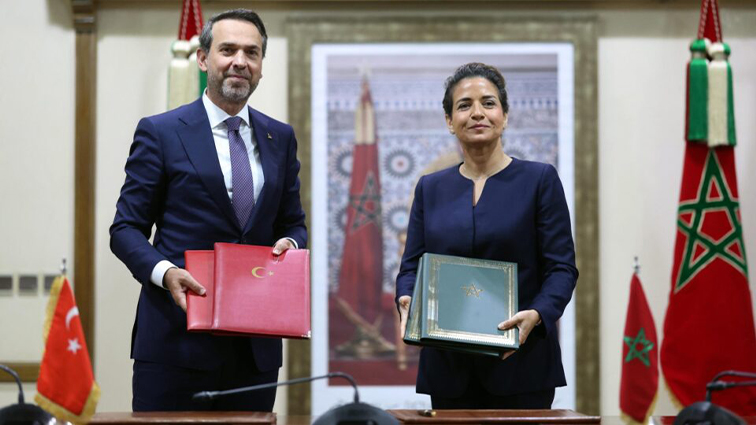Morocco and Turkey signed two agreements in the fields of energy and mining aimed at “improving bilateral relations in various energy fields and implementing joint projects.”
This came during an official visit by the Turkish Minister of Energy and Natural Resources, Alp Arslan Bayraktar, to Morocco, and the signing took place in the capital, Rabat, in the presence of officials from the Ministry of Energy Transition and Sustainable Development, the National Office of Hydrocarbons and Minerals, the National Office of Electricity and Potable Water, the Moroccan Agency for Sustainable Energy, and the Agency. Moroccan Energy Efficiency Institute, and the Research Institute for Solar Energy and New Energies.
The two agreements were signed by the initials of the Moroccan Minister of Energy Transition and Sustainable Development, Leila Benali, and the Turkish Minister of Energy and Natural Resources, and aim to enhance cooperation in the fields of renewable energies, green hydrogen, energy efficiency, electricity production and distribution, integration of energy markets, clean technologies, decarbonization, and exploration. Hydrocarbons.
The two agreements also seek to produce geological maps, remote sensing, databases, geographic information systems (GIS), and artificial intelligence for mineral assessment, geological research, post-mine management and seismic monitoring, management of strategic and critical minerals, and exploration of energy and mineral resources.
The Turkish Ministry of Energy and Natural Resources explained, in a statement, that “the two countries have taken a step that will strengthen bilateral cooperation,” noting that “Morocco has serious potential in the field of renewable energies.”
Bayraktar stressed in the statement that his country “has a great ability to purchase liquefied natural gas with the investments it has made in recent years.”
Bayraktar concluded by saying: “Turkey and Morocco enjoy very strong trade relations, and they will work to strengthen them even further through possible joint projects in the future.”
Arrest of an American expert at Istanbul airport on charges of smuggling spiders and scorpions
